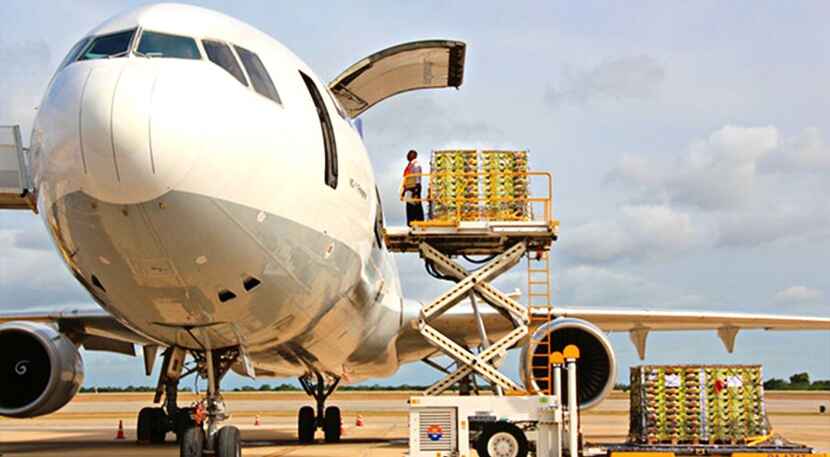
Owning and operating an air cargo company is a venture that may seem alluring with the promise of soaring profits and global reach. However, beneath the clouds of opportunity, there are significant challenges and risks that come with the territory. In this blog, we will explore why owning an air cargo company is a risky endeavor, shedding light on the complexities and pitfalls involved.
The Allure of Air Cargo Companies
The Promise of Global Reach
One of the primary appeals of owning an air cargo company is the potential for global expansion. Air transport allows for the rapid movement of goods across international borders, enabling businesses to access a vast market.
Lucrative Market Demand
Air cargo services are in high demand for transporting time-sensitive and high-value goods such as electronics, pharmaceuticals, and perishables. This demand can translate into substantial revenue for air cargo companies.
Dynamic Industry Growth

The air cargo industry has seen steady growth in recent years, driven by e-commerce, international trade, and supply chain complexities. This growth creates opportunities for new entrants to capture market share.
Navigating Regulatory Challenges
Strict Aviation Regulations
Owning an air cargo company means being subject to stringent aviation regulations and safety standards. These regulations are designed to ensure the safety of passengers and cargo, but they add layers of complexity and cost to the operation.
Customs and Security Compliance
Crossing international borders means dealing with complex customs and security procedures. Failure to comply can result in significant delays and fines, which can eat into profits.
Fleet and Infrastructure Costs
Investment in Aircraft
Air cargo companies require a fleet of aircraft, which is a substantial capital investment. These aircraft must be maintained, upgraded, and periodically replaced, adding to the financial burden.
Maintenance and Repairs
Aircraft maintenance and repairs are crucial for ensuring safety and efficiency. These costs can be unpredictable and can strain an air cargo company’s financial resources.
Infrastructure and Facilities
Operating an air cargo company necessitates infrastructure such as cargo terminals, warehousing, and maintenance facilities. Building and maintaining these facilities involves significant costs.
Volatile Fuel Prices
Fuel costs are a major expense for air cargo companies. The aviation industry is particularly vulnerable to fluctuations in fuel prices, which can have a significant impact on operational costs and profitability.
Competition and Price Wars
Intense Competition
The air cargo industry is highly competitive, with both established carriers and new entrants vying for market share. The presence of numerous players can result in pricing pressure and reduced profit margins.
Price Wars
In a bid to attract clients, some air cargo companies engage in price wars, offering discounted rates that can erode profits. These price-driven strategies may not be sustainable in the long run.
Economic and Market Volatility
Global Economic Factors
Air cargo companies are exposed to the vagaries of the global economy. Economic downturns can lead to reduced demand for air cargo services, impacting revenue.
Market Volatility
Market forces such as exchange rate fluctuations and trade disputes can disrupt global supply chains and influence air cargo volumes. This unpredictability makes it challenging to forecast and plan for business growth.
Security and Risk Management
Security Threats
The air cargo industry is vulnerable to security threats, including terrorism and cargo theft. Ensuring the safety and security of cargo and personnel is a constant challenge and expense.
Natural Disasters
Air cargo companies face risks related to natural disasters such as hurricanes, earthquakes, and volcanic eruptions. These events can disrupt operations and lead to substantial losses.
Global Health Crises
The outbreak of global health crises, such as the COVID-19 pandemic, had a profound impact on the air cargo industry. Border closures, travel restrictions, and reduced consumer demand for goods disrupted supply chains and led to significant financial losses for many air cargo companies.
Conclusion
While owning an air cargo company may offer the promise of lucrative opportunities, it comes with an array of risks and challenges. Navigating strict aviation regulations, managing infrastructure costs, and dealing with unpredictable factors like fuel prices and economic volatility require a careful and strategic approach. Competition and price wars can squeeze profit margins, while security concerns and global health crises add layers of complexity to the operation.
Despite these risks, some entrepreneurs and businesses continue to find success in the air cargo industry by implementing robust risk management strategies, embracing technology, and staying adaptable. However, it’s essential to recognize that owning an air cargo company is not for the faint of heart; it requires a high tolerance for risk, a deep understanding of the industry, and a willingness to weather the challenges that come with high-flying ambitions.

 07424380227
07424380227